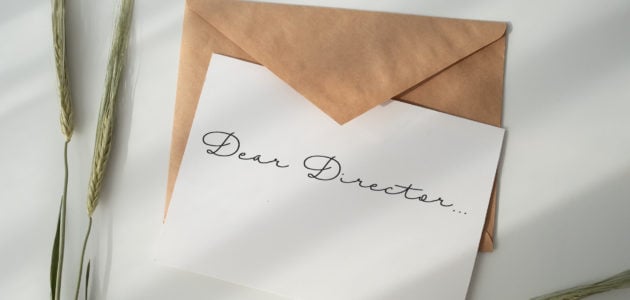
Dear Directors…
To our dearest directors,
Theatre, film, television, commercial, and radio play directors alike!
We actors love you. We really do. We love the chance to work with you all, because we love to work! There are just a few things we would really love the chance to address moving forward. Because remember, we love you.
#1 Treat Others the Way You’d Like to be Treated
I’ve been fortunate enough to have experience working both on and backstage and either side of the camera, and the greatest thing I’ve learnt is that there’s really no such separation when you look at the bigger picture. We’re all part of the same team, working for the same goal, just from different positions. And no matter the disparate roles we play we are all CO-WORKERS and colleagues.
As such, that old saying to “treat others the way you would like to be treated” resonated quite nicely with regards to any role I had to take. Be the actor you would want on your set; be the producer you would want producing your project; be the director by whom you would want to be directed. And if you have high standards and expectations – which you probably do if you’re pursuing a career in the infamously lofty arts industry – this behavioural approach will surely get the results you want. Next time you’re giving a direction and the actor, or gaffer, or stagehand, or best boy, or whoever doesn’t quite comprehend it, take a step back and consider: “if I were receiving this direction, would I understand it?” Now you’re obviously in a biased position seeing as, hopefully, you have a clearer understanding of the vision than anyone else on the production – but consider being in their shoes, and that desire that they just want to do the best and right job every time.
One surety on which you can rely is that most of the time, an actor will come onto a project with the intention that they must respect the director. It is, after all, the director who we, and everyone else turns to for guidance when lost. And while the following advice might seem obvious to some – the fact that someone needs guidance is not a reason to lose respect for them. Recently a group of fellow actors and I were discussing the way that sometimes if we’re struggling with a direction, directors tend to speak to us as if we’re incompetent children as opposed to a mutual meeting of capable minds. This prompted one of our group to describe how the best director with whom she worked “spoke to me as if he was talking to Judi Dench.” Apparently at the end of the production when she thanked him for his respect and creating a rare and wonderful working environment, he said that in his experience, “if you treat people like they’re idiots, they’ll behave like idiots.”
#2 The Key to Inspiring Trust is Communication
The most important thing I, as an actor, hope to have in my relationship with the director is trust. When I trust the director’s vision, process and opinion, I feel free and safe to work under his or her leadership no matter what the task may be. An actor really craves that faith because we are largely reliant on your leadership towards getting what’s best for the project, whether it be anything from a moment’s blocking or a single take, to the play or film as a whole. Unfortunately, this trust is not always a guarantee.
I’ve found it’s hardest to place my faith in those who struggle with one of the most fundamental qualities every director must master – their ability to COMMUNICATE.
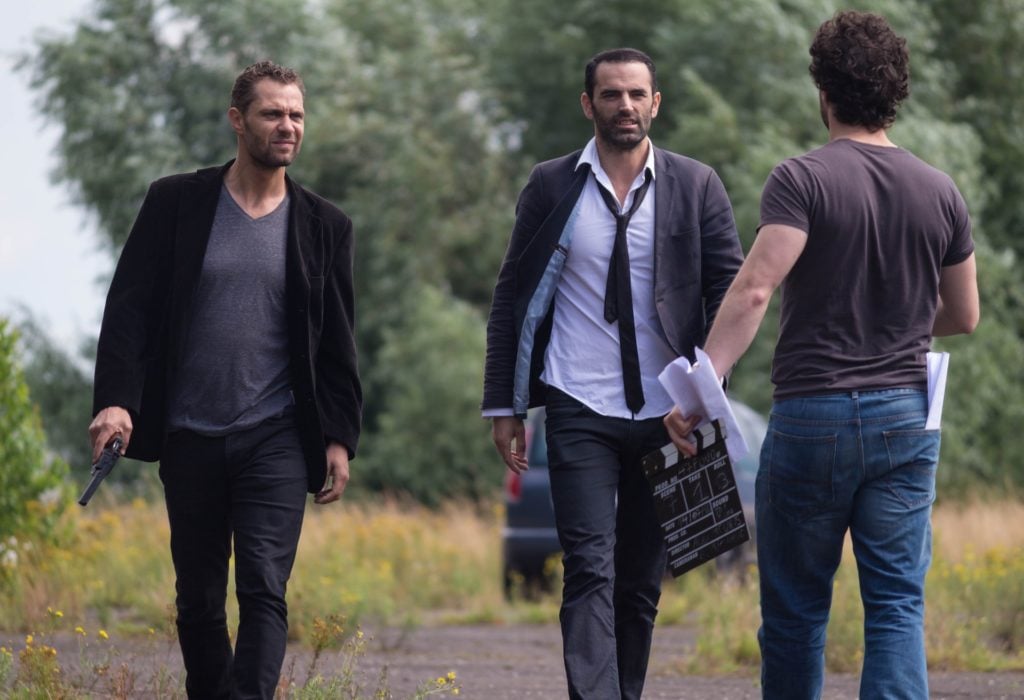
#3 Take the Time
It’s paramount, first and foremost, for a director to clearly communicate his or her vision to everyone working under them. We can all imagine a great movie or a powerful show, but the trick is to inspire this greatness and power you seek in all those around you. TAKE THE TIME to get everyone on the same page as you, otherwise your cast and crew will be left wandering in the dark. This too may seem obvious, but it is still the most common issue I’ve faced with many projects.
Some of the best directors I’ve worked with set up early individual meetings with the cast well before we officially started the project. TAKE THE TIME to sit with the actors and discuss the story and their character’s importance to it. Find a common ground. You don’t have to know the answer to every question we fly at you, in fact, the process of discovering those answers together through analysis and dissection is often where we unearth the aforementioned common ground. But also try and be prepared, as an actor will always respect a director who has done their homework. I’m undoubtedly more willing to follow someone who has thoroughly researched the genre and production style, who has a deep comprehension of the story they’re telling, and who can help me see the visionary potential of the end product.
Some directors have even presented films or clips for me to watch referencing their intended style as well as the types of performances they are hoping for me to emulate. We love this attention to detail, but it’s important NOT to tell an actor that you want them to give you exactly what another actor has done in another production. Consider if you were to show your DOP your favourite film and asked them to shoot the film you’re making the same way. They would have to first study and understand how the shots were technically achieved, then hopefully they will question why the original DOP chose to shoot your favourite film in this way: how does this shooting style reflect and accentuate the story being told? This is the same with actors. When we reference a performance with the intention to inspire our own, we aren’t simply noting the technical approach to achieving something similar, BUT rather questioning: What has happened in this character’s journey to allow this actor to reach this emotional peak at this specific point in this plot? We MUST examine all within the context of the human narrative we’re watching. So asking us to just to copy a performance is limiting not only our potential, and the production’s potential, but also kind-of belittling the craft.
And every actor has a different method to their work, no matter with whom or where they studied, everyone will approach a performance with whatever works for them. Also, any actor worth their keep will enter a production with a semi-conscious aim to figure out how THIS director works so that they can achieve the best results for them. Don’t be afraid of this. Instead, in these early meetings, TAKE THE TIME to talk about your process and how you intend to achieve what you see for the project. Then you can invite the actors to open up about their preferred process of working so that you might unite a happy coupling of the two, which infinitely betters your chances at it being a successful and fruitful marriage during production.
#4 Order and Organisation = Professionalism
The worst productions I’ve worked on are those that lack strong order and organisation. While this is vastly the job of your producer, if you don’t make sure it’s handled it always leads back to a poor reflection on you, the director. I recently acted in a short film (fully funded, which does make a difference) where I was required every day to be at the production base location having no idea what scenes we were shooting until I arrived, which was when it was pretty much decided. Films are notorious for schedule changes and running overtime – it’s somewhat expected. However, an actor’s performance will suffer, and thus so will the film, without proper information given. It leaves little time to prepare and even less time to be guided by you the director, who in this case was rightfully too preoccupied trying to get a grasp on the rest of the set. PREPARATION IS OUR BEST FRIEND, and is the fulcrum to order and organisation. This includes, at the very least, planned call sheets, shot lists – and while, of course, they are also totally susceptible to change, the fact that they have been prepared, collaborated and signed off by the director, is enough of an anchor from which to work for both cast and crew.
By nature, the stakes are a little different when it comes to a theatre performance, as it is somewhat a given that we would have probably had months of preparation prior to the main event. However, lest we not belittle how much we actors treasure that time in rehearsal! Which makes it all the more challenging when the rehearsal process lacks organisation. Most directors would already know that a scene always suffers when an actor isn’t yet off-book – then it becomes alive when they have those lines down and loaded in. Some may argue this is typically truer in theatre than in film as there are usually longer, dialogue-heavy scenes in a stage play. Either way, knowing those lines frees us actors to build and discover so much more life in the performance, as opposed to being consumed with trying to remember what we have to say next. Here, having a well-organised rehearsal schedule is a true blessing for actors. We can more practically and progressively assign time to learning the lines required specifically scheduled for the oncoming rehearsal, and use that time to play and explore the story, rather than have our eyes and attentions distractedly glued to the script. And if a schedule is thankfully created, we would be even more grateful if we did our best to stick to the plan provided. Yes, there are always variables and extenuating circumstances, which we can of course handle, but frequently changing or blithely disregarding the schedule can be a huge hindrance to the growth and betterment of our work.
Essentially, actors DO NOT thrive on confusion. We relish preparation, and it shows in the work it allows us to create.
FACT: Rehearsals are NECESSARY and NEVER a waste of time
I feel that this is a perfect time to mention that, no matter the type of production, rehearsals are more than just preparing a scene for a future performance – they are also a perfect way to bond and collaborate with your CO-WORKERS. For filmmakers in particular, who more frequently resist or omit the notion of rehearsals, this process is a great opportunity to see what your actors will be like on set, all the while experimenting with the scenes with total focus on the performances. On the day, you directors will understandably have so many other things on your mind, it always helps to build a previous dialogue with the actors so that you can keep the direction brief having already played and prepared things in rehearsals.
Now we know that with some productions, especially TV, there’s often no time for rehearsals; but if there is the chance they can be incorporated into pre-production, DO IT. Also, rehearsals are obviously dependant on the type of film you’re making. I did one short that was based on improvisations, so the spontaneity while shooting was more important. The director accommodated for this by being well-prepped in every other area for shooting so that he could give us actors appropriate attention with this challenging task. While in a musical film I shot we needed and had an extensive rehearsal period before we got to set.
As previously stated, despite the fact that rehearsals in theatre are considered somewhat sacred practice, unfortunately they can often be improperly run, which tends to inhibit the overall show. Particularly, it should be made clear that: theatre rehearsals ARE NOT PURELY ABOUT BLOCKING. Yet again, this might seem obvious to many out there, and yet too often have I worked with theatre directors who stick so staunchly to early decisions that are based more in aesthetics than organic discovery – which is invariably where the magic of live theatre LIVES! Now, to clarify, I am not saying that actors have any right to ignore technical requirements or refuse artistically specific actions of a show. But, as I’ve mentioned before, most of the rehearsal process should be utilised as a period where we players and play directors get to PLAY with the material. ALLOW FOR EVOLUTION. Consider too that by the latter half of the production we actors have most likely developed a greater familiarity with the text, the character we’re playing, and your directorial vision. When we are forced to set in stone aspects like blocking too early on in the process, it often stifles some golden new choices that have blossomed over time and more detailed work.
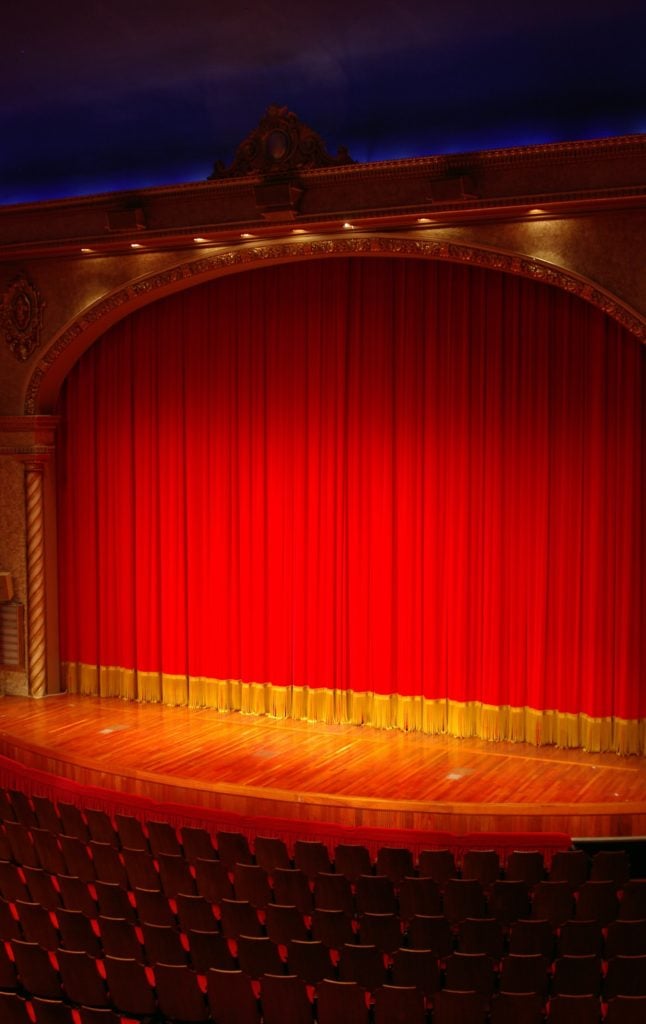
#5 Don’t Make Actors Responsible for Other Actors
By now most directors reading this are saying: “You know, sweetheart, you actors aren’t always a cake-walk-in-the-park-with-puppies either!” TOTALLY AGREE.
There are times when we actors can grate on anyone’s nerves and their poor attitude and behaviour can not only be a burden on production but a flaw in the quality of the project overall. It is certainly also our responsibility to maintain, cooperative and collaborative professionalism in accordance with getting our job done to the best of our ability. Sadly, there are some of our multifarious clan who certainly don’t. BUT while we are always willing to assist with the betterment of the piece, if let’s say we have to pick up our game somehow because another actor simply hasn’t or won’t – there is a level of assistance that we can provide here. As long as we have been given proper COMMUNICATION and instruction by you – heir maestro! However, an actor should NEVER be left hanging or left alone to deal with a fellow actor on their bad behaviour or poor commitment to the project.
I was once well into the rehearsal process of a play and it was clear that one of our fellow actors really didn’t know his lines. Other cast members and myself had expressed private concerns to the director, who, while he had discussed the issue with the actor, really didn’t take any greater charge than a conversation. Then, unnecessarily more nervous than usual, we had our opening night, with a paying audience and all, and during the show our forgetful fellow actor paused, left the stage, and returned with a script in his hand from which he read the rest of the scene. Needless to say, it was a rather traumatic experience for us, and the show did not go well. As much as this issue was vastly the fault and shortcomings of the forgetful actor, himself, it is also largely the director’s responsibility to never let the situation get that bad.
#6 Take an Acting Class
There is a reason why so many actors say that the best directors are those with some level of acting background. It’s not essential, but it does give the director an insight into the actor’s process and seriously helps us to speak the same language. If you really want to get along with your actors, I would suggest researching some techniques. And it can be for no other reason that to improve as a director – I’m not saying change your life’s goal or purpose or anything like that – but there are genuinely endless resources out there to be accessed, whether it be free online tutorials, myriad books, or even a splurge on an evening class or two. Having a broader knowledge of our craft will only strengthen your power to direct us in accordance with your brilliant vision – how could it not?! And, believe me, familiarity, sympathy and some understanding of our process is one of the most respectful gifts anyone can give to an actor.
More About: Learning Acting Online
If you find yourselves with an actor using a specific method that you simply don’t understand, it’s best to still be respectful of it (within reason). If you at least try to work with/within their chosen technique rather than against it, you’ll probably find that the actor is more willing to cooperate with the way you work, however that may be. Although, while this is a very effective way of performing, it’s this type of attention to the craft that has ignited a misconception that one must treat an actor delicately and approach the temperamental creature with extreme caution. It’s true, many actors I’ve come across some that present themselves as these sort of raw, exposed, susceptible nerves that well up with the slightest of criticism – and it’s like: “save it for the screen, mate.”
What I can deduce from observing this misbehaviour and (from a personal perspective) is that this highly-strung sensitivity is an occupational hazard. Having to keep our emotions so close to the surface to call upon at a moments notice does have it’s drawbacks, but I find the more professional the actor the less such a consequence of the JOB impeding the technical side of the process. Because at the end of the day we are PEOPLE, your co-workers and colleagues, doing a JOB. Now, if you see that an actor has cornered himself or herself off, quietly listening to their iPod and scanning the script pages – my advice is to leave them alone unless it’s absolutely necessary to talk to them. Have you ever just wanted to be alone with your own thoughts, trying to collect yourself? Well, that process is half of an actors work on set – let them have it if they need it. That being said, I have also been on a set where an actor privately took a lighter flame to his forearm and then during the take pressed against the burn blister so as to accomplish “real emotional pain” for the scene. THIS is the type of irrational and harmful behaviour that would be unhealthy in any work environment – feel free to interrupt that process.
#7 Professional Awareness
An acclaimed actor and teacher of mine, Ted Brunetti, spoke of “professional awareness” with regards to acting. As actor’s, we are surrounded by the mechanical nature of filmmaking or the “staged” fallacy of theatre, but the better our ‘professional awareness’ is, the easier it is to suspend our disbelief and live as authentically as we can in the illusion of the story we’re creating. Think about it: we have the challenge of ignoring the room full of crew or a full playhouse, a camera in our faces or hot blaring lights, often meeting our tiny fluorescent mark on the floor, and delivering the correct lines to our scene partner who may not even be in the place they should be in reality because we have to maintain a certain eye-line. On top of all this, we must conjure up the right emotion (from nothing) that is believable within the context of the moment.
“That’s your job!” I hear you all passionately cry! Yes, it is – we get that – doesn’t mean it’s easy. And the more concentration and support we have for that fact the better the end result…which is the project you’re directing. Just know this isn’t a complaint – we actors should be very aware that this is what we signed up for and it’s often those who aren’t that suffer and become more difficult to interact with on any given project. Years ago I performed in a Double Bill of two (totally different) plays that were staged back to back every night with an intermission in between. In the first show, I played a young American, suicidal, bipolar, crazed screenwriter, which (as you probably expected) ended with my character in a rather dark place emotionally. All I had was a short intermission to pull myself together, wipe the tears and snot off my face, have a quick costume change, and immediately get back out there for my next role as a middle-aged, happy-go-lucky Aussie bloke and mortuary attendant.
My point is, we actors all have tricks up our sleeve to get into character and do what is required, but usually there is a very personal process to these tricks that the actor must work through alone and it always helps when the director understands and is in full support of that process. And I am supremely grateful that the directors of those productions were utterly sympathetic and I’m certain my performance reaped all the benefits.

Common Directorial Mistakes!
Here are some common directorial mistakes I’ve encountered that are examples of wrong forms of communication:
#1 Incorrect Use of Criticism
It’s really important that you make a clear distinction with what is constructive direction, and what might simply be shutting an actor down completely. For instance, once while rehearsing for a rather intense romantic scene, the director wasn’t quite fully satisfied (no pun intended) and publically diagnosed me with having “serious intimacy issues”. I had to develop a great deal of mental toughness not to let such a self-conscious worry impede my performance from then on. Regardless of whether the observation was accurate or not (*cough, it wasn’t, *cough) a little patience and a private conversation would have probably been the better option for optimum performance (again, no pun).
#2 Directing from Behind the Camera
We can handle a little bit of this, particularly if time is against us, even though it’s not the preferred way of doing it. However, one director found it more productive to shout at me from across the room, in the middle of a take: “I don’t believe you yet, try again!” He did this several times, so many that the DOP actually came to my defence at one point. I asked if we could discuss what he was looking for exactly and his response was: “believability”. Now there is definitely the chance I was just God-awful in the scene, but the pressure and refusal to help me improve certainly didn’t help things.
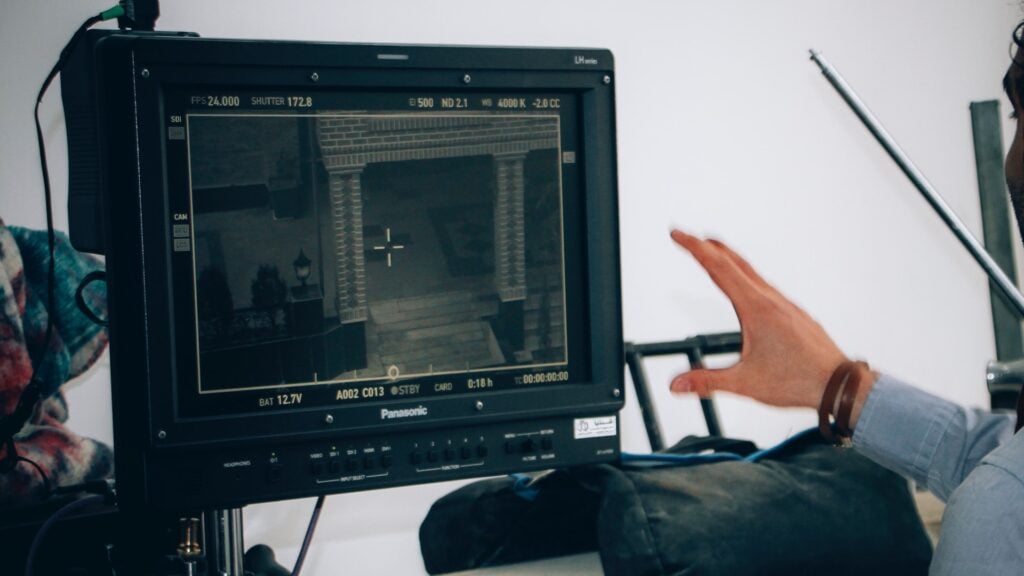
#3 Significant Changes on Opening Night
I once did a play that, granted, was not the smoothest of projects across the board, but early on the director and I had discussed his vision of the character, which was followed by many months of a whole rehearsal period working accordingly. Then, after our final full dress rehearsal, while giving the entire cast notes, the director decided to tell me that the performance I was doing was not working and proceeded to reference a specific character from a television show that I should start emulating instead. The play was opening that night. I begged for more detail, of course, despite being somewhat speechless, and I suspect my bamboozlement was obvious given that a fellow cast member beside me surreptitiously put a supportive hand on my arm in solidarity. Private counsel with the director later, unfortunately, didn’t help much either and by the time the audience had taken their seats I was utterly uncertain and anxious about the whole thing. Alas, the show must go on… but it certainly wasn’t my best.
#4 General Direction
A derivative of this is known as ‘results-based direction’ whereby the director says: “be angry”, “be sad”, “be happy”. Again, we do expect a little bit of it and accommodate if necessary. Commercial directing is a good exception to this approach as their creative decisions are less concerned with dramatic realism and more with achieving a preapproved mood broadly caters to the product’s widespread marketing scheme. However, in longer narrative-driven projects that strive for something deeper, it is much preferred that we discuss the scene and explore the story within and around it. WHY we’re feeling these things e.g. motivation, objective – THESE ARE NOT ARBITRARY CONCERNS and are, in fact, a tried and true practice to get the effective performance the project requires. Sometimes the direction is so broad with possibilities, that no matter which way we try we just can’t get on the same page, and it gets to the point of: “just tell or show us what you want and I’ll make that work!” Under this same umbrella are those unplayable instructions that we really can’t translate in any way. E.g. “more intensity” – how does one play “more intense”? Seriously? And if you have an explanation, direct your actor using that definition rather than the word itself.
#5 Too Specific (Technical) Direction
If an actor happens to raise their eyebrow, for example, in such a beautiful way at a certain point in that take, don’t ask that of them for every take following. Chances are they didn’t even realise they did it because they were so present in the scene, which is why it looked so real and great. Usually, this will make the actor consumed with getting that one moment correct and the rest of the take will suffer because their concentration is misplaced. Again, we can handle it to a degree if our professional awareness is up to scratch. It is, after all, technically part of our ability to maintain continuity, it’s just really not preferred. However, again I would have to note that commercial productions are an exception to this rule, given that advertising is often predicated the minutia of expression and their sellable viability.
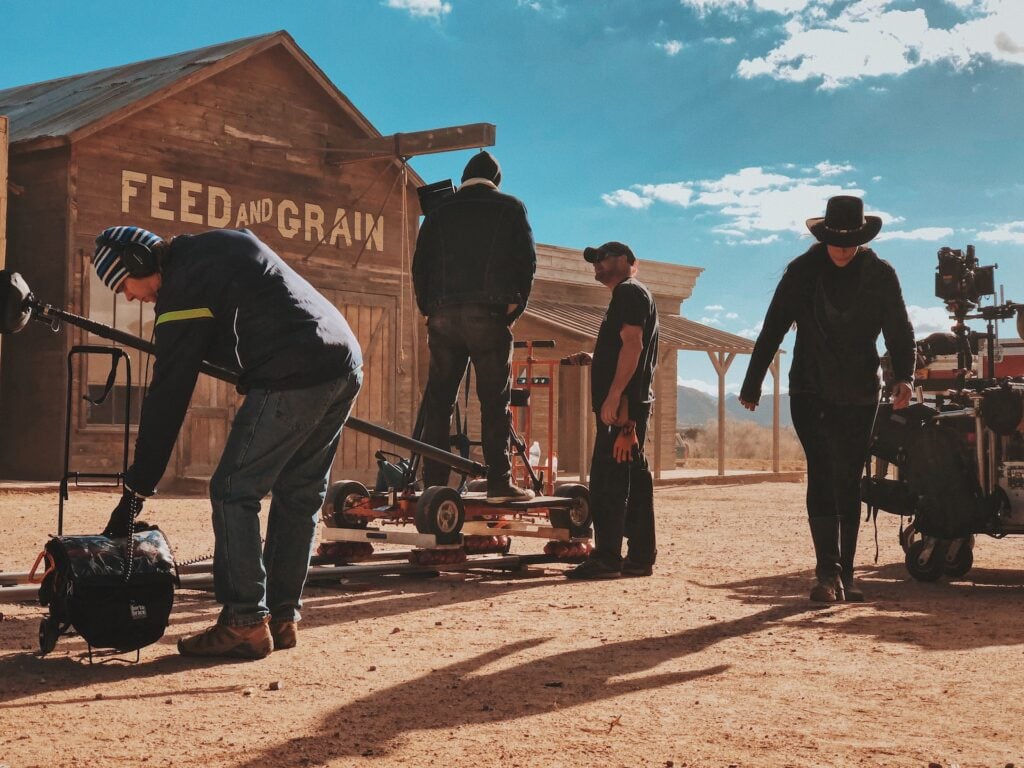
#6 Playing Mind Games
I reiterate, RESPECT us actors enough that we just might achieve what you’re looking for if we talk it out and COMMUNICATE as equal minds. On one production, the director wouldn’t actually share his vision with me (I suspect because it was underdeveloped and ill-researched), but rather tried to make me figure it out by way of answering a question with a question. E.g. “Why would I (my character) start talking about the inheritance at all right now if my world is totally shattered by the death?” To which he replied: “Why do you think you (your character) would start talking about the inheritance at all right now if your world is totally shattered by the death?” At the time the answer truly eluded me, and I thought: if I knew I wouldn’t have asked and the scene would probably be working fine. Now, I don’t want this to be misconstrued as a back and forth open dialogue with a director. This was a tactic the director used repeatedly and dampened any sense of security I had in approaching him for help if need be.
Oh, and one final tip before I conclude…
PLEASE PAY US!
We understand the purse strings are tight on many productions, particularly those artists and creators that are starting out. It’s just… we really do want to do our best WORK for the project… and we also really do need to eat and pay rent. Like everyone else. When you don’t offer an actor payment for their JOB it is less of a “great opportunity” and more of an insult and invalidation to their work. Now it should be made clear that in reference to nil-budgeted productions, we know the drill – but I have certainly been on jobs that pay the crew and not the actors. THAT is wrong and exploitative and if you have the power to disallow such behaviour on your productions, then my advice to you – my dear directors – USE THAT POWER.
Be the director by whom you would want to be directed.
With utmost love and sincerity,
Actors
xoxo

Leave a Reply